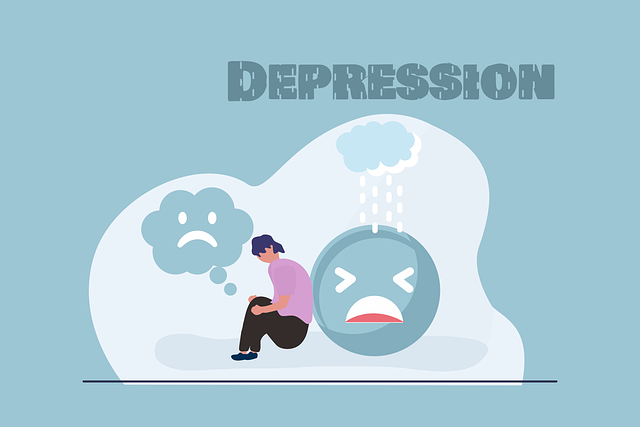Arvada Phobias Therapy empowers individuals to transform their lives through positive thinking and specialized therapeutic techniques. By addressing negative thought patterns, anxiety, and phobias, they offer programs like Mental Health Education, Empathy Building, and Social Skills Training. These strategies enhance well-being, foster resilience, and improve emotional communication, providing effective tools for managing stress, anxiety, and depression. Incorporating daily positive thinking exercises, such as gratitude practices, leads to a more optimistic outlook and improved quality of life.
Positive thinking is a powerful tool for enhancing mental health and overall well-being. This article delves into the transformative power of positive thinking exercises, exploring their profound impact on daily lives. We’ll guide you through understanding negative thought patterns, offering strategies from Arvada Phobias Therapy to reframe them. Discover practical techniques to cultivate positivity consistently, fostering resilience and a more optimistic outlook. By implementing these practices, readers can unlock their mental potential and lead happier, more fulfilling lives.
- Understanding Positive Thinking and Its Impact on Mental Health
- Identifying and Overcoming Negative Thought Patterns
- The Role of Arvada Phobias Therapy in Reframing Negative Beliefs
- Practical Techniques for Daily Positive Thinking Exercises
- Building Resilience and Enhancing Well-being Through Consistent Practice
Understanding Positive Thinking and Its Impact on Mental Health

Positive thinking is a powerful tool that can significantly impact an individual’s mental health and overall well-being. It involves cultivating a mindset focused on optimism, gratitude, and personal empowerment. When individuals embrace positive thinking exercises, they learn to reframe negative thoughts, challenge distorted beliefs, and foster a more encouraging inner dialogue. This shift in perspective has been shown to reduce stress, anxiety, and symptoms of depression, ultimately enhancing one’s resilience and coping mechanisms.
At Arvada Phobias Therapy, we recognize the profound effects of positive thinking as a therapeutic approach. Our Mental Health Education Programs Design and Empathy Building Strategies are tailored to help clients develop a more optimistic outlook. Through Social Skills Training, individuals learn to communicate their emotions effectively, build supportive relationships, and navigate challenging situations with resilience. By integrating these strategies, we empower our clients to take control of their mental health journey and cultivate a lasting sense of well-being.
Identifying and Overcoming Negative Thought Patterns

Negative thought patterns can often be subtle and deeply ingrained, but identifying them is a crucial step in implementing positive thinking exercises. Many people struggle with recurring negative thoughts that impact their daily lives, leading to feelings of anxiety or depression. Recognizing these patterns can help individuals break free from unhelpful cognitive habits. For instance, someone might notice a constant stream of self-critical remarks or a tendency to catastrophize minor setbacks. These thought processes often serve as automatic responses, quickly triggered by certain situations or emotions.
Arvada Phobias Therapy offers valuable tools to address and overcome these challenges. Through structured strategies and techniques, mental health professionals can assist individuals in reevaluating negative thoughts and replacing them with more positive and realistic ones. Effective communication strategies play a vital role in this process, enabling clients to challenge their negative beliefs and develop healthier thinking patterns. By combining these approaches, therapists support clients in managing not only common anxieties but also broader depression prevention efforts, ultimately enhancing overall well-being.
The Role of Arvada Phobias Therapy in Reframing Negative Beliefs

Arvada Phobias Therapy plays a pivotal role in reframing negative beliefs and fostering emotional well-being promotion techniques. Through specialized therapeutic approaches, individuals can learn to challenge and replace detrimental thought patterns with more positive and realistic perspectives. This process is essential for burnout prevention strategies for healthcare providers, who often face high-stress environments, allowing them to maintain mental wellness podcast series production while mitigating the impact of negative beliefs.
By addressing underlying phobias and fears, Arvada Phobias Therapy enables clients to navigate life’s challenges with newfound resilience. This not only enhances their ability to cope but also empowers them to engage in healthy habits that support overall mental wellness. In turn, reframing negative beliefs can lead to improved decision-making, better stress management, and a more optimistic outlook, ultimately contributing to a higher quality of life.
Practical Techniques for Daily Positive Thinking Exercises

Incorporating daily positive thinking exercises into your routine can significantly impact your mental well-being and overall quality of life. A simple yet powerful technique is to start each day with a gratitude practice. Take a few moments to reflect on the things you’re grateful for—from personal relationships to small pleasures in life. This mindset shift helps to train your brain towards positivity, fostering a sense of contentment and optimism. For instance, during morning meditation or while enjoying your breakfast, jot down three to five things that bring you joy, thus setting a positive tone for the day ahead.
Another effective strategy is to challenge negative thoughts and replace them with more constructive alternatives. This involves heightened self-awareness, recognizing when you’re engaging in unhelpful thinking patterns. For example, if you find yourself stuck in a loop of anxious thoughts, ask yourself: “Is this thought serving me?” Encouraging self-reflection can help identify distorted thinking and replace it with realistic, positive affirmations. Arvada Phobias Therapy often employs conflict resolution techniques to manage anxiety relief, promoting healthier ways of navigating challenging situations and fostering a more optimistic outlook.
Building Resilience and Enhancing Well-being Through Consistent Practice

Positive thinking exercises, when consistently practiced, become a powerful tool for building resilience and enhancing overall well-being. This simple yet profound process equips individuals with the ability to navigate life’s challenges with greater ease. By regularly cultivating positive thoughts, one can transform their mindset, fostering a more optimistic outlook that bounces back from setbacks rather than crumbling under pressure. This mental fortitude is akin to building muscular strength; the more it’s exercised, the stronger it becomes.
For instance, Arvada Phobias Therapy leverages these practices to help clients manage anxiety and fear-related disorders. Through structured exercises aimed at reframing negative thought patterns, individuals learn to confront their phobias head-on, thereby reducing the impact of stress and promoting emotional intelligence. Stress Reduction Methods and Stress Management Workshops organized by such therapy centers play a crucial role in this process, offering participants practical tools to manage their mental health proactively.
Implementing positive thinking exercises, with techniques like those offered by Arvada Phobias Therapy, can significantly enhance mental health and well-being. By identifying and reframing negative thought patterns, individuals can build resilience and cultivate a more optimistic outlook. Consistent practice of these exercises not only improves daily life but also serves as a powerful tool for personal growth and transformation.












